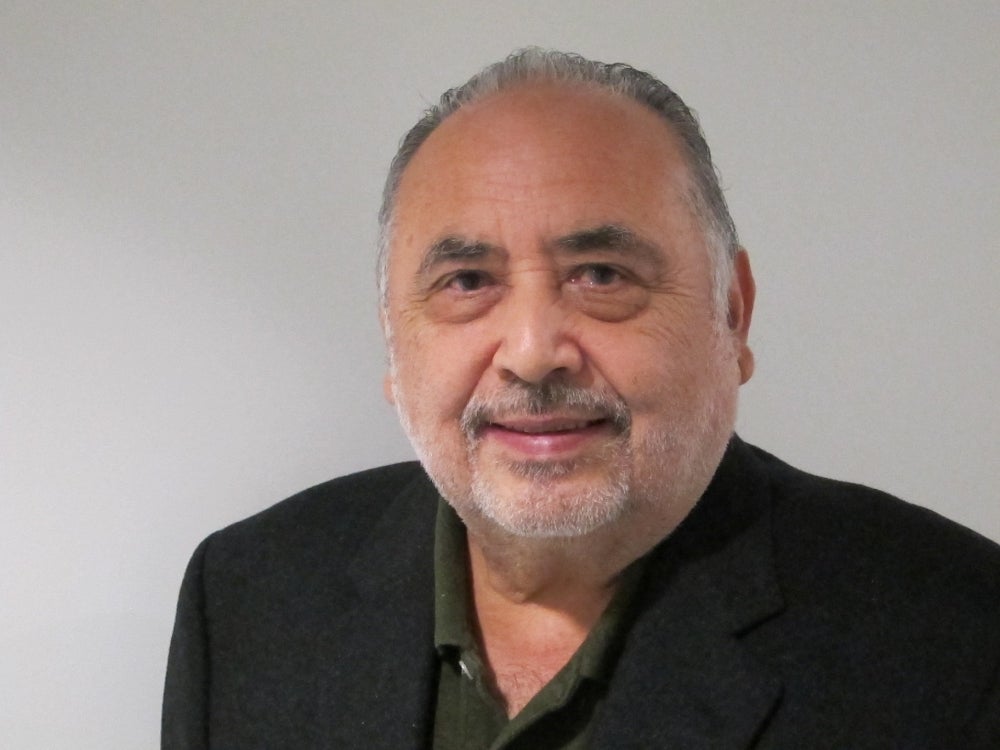
‘Brilliance and Benevolence’

For nearly four decades, Richard Durán in UC Santa Barbara’s Gevirtz School has studied literacy and learning for people of varied language and cultural backgrounds, with an eye toward improved instruction and academic outcomes. His steadfast, exceptional scholarship has now resulted in a prestigious recognition: election to the National Academy of Education (NAEd).
Founded in 1965, the mission of the NAEd is to advance high-quality research to improve education policy and practice. As an honorific society, the academy consists of U.S. members and international associates — fewer than 300 professors worldwide — who are elected on the basis of outstanding scholarship related to education.
Durán brings to two the number of National Academy of Education members in the Gevirtz School, joining Professor Emeritus Russell Rumberger.
“I was absolutely thrilled to learn about my election to the National Academy of Education,” said Durán, a professor in the Department of Education. “It is such an honor to receive this career recognition from fellow colleagues. I am so grateful to the students and colleagues that I have collaborated with over the years to work on examining and devising ways to understand and improve the learning opportunities of our most underserved communities.
Durán’s research interests are not confined solely to learning in school settings. After obtaining his Ph.D. in psychology in 1977, he worked at Educational Testing Service in Princeton, N.J., conducting investigations and publishing research findings on the validity of the SAT, GRE and TOEFL tests. In more recent years he has conducted research for the NAEP Validity Studies Panel sponsored by AIR on the implementation of computer based assessments. This work benefited from his graduate training in quantitative and cognitive psychology.
His research over time reflects a strong interest in how more effective instruction could be designed to assist academic outcomes for culturally and linguistically diverse students who don’t perform well on standardized tests and who come from low-income families.
Enter social constructionism and cultural psychology as current fields of focus for Durán’s work.
Since joining the Gevirtz School faculty in 1984, Professor Durán has carried out a research program investigating learning and culture itself as socially constructed. This endeavor has been heavily influenced by the emergence of cultural psychology as a field, drawing on the cultural historical or Vygotskian views of cognitive development and activity theory.
His research teams have investigated how classroom interaction leads to the construction of learning expertise; how teachers design and implement constructivist learning activities for students; and how students’ self-awareness of their performance leads to new notions of assessment.
As they conducted research in classrooms, Durán and his colleagues realized the value of a more ecologically complex approach to improving educational outcomes. Accordingly, in collaboration with Prof. Betsy Brenner, he and his team now are examining children’s learning in after-school computer club settings with support from the UC LINKS after-school computer club network. His current work also concerns the topic of computational thinking and ubiquitous computing. The underlying issues are about how humans are being transformed by technologies and how this can inform new ways of learning and human extension. Durán believes young people from underserved communities deserve our concerted attention in accessing these developments as they develop aspirations for their educational futures and life goals.
Yet another strand of inquiry: working with the immigrant parents of students to help them learn how to use computers and how to work with their children on research and publication projects, an effort originally supported by the Center for Research on Education, Diversity, and Excellence. Concern for electronic technology and its facilitation of learning as a social process is a unifying theme across Durán’s research projects.
“UC Santa Barbara and the Gevirtz School have had the great fortune to have Professor Durán work with us for 38 years, so we well know of his brilliance and benevolence,” said Jeffrey Milem, Jules Zimmer Dean of the Gevirtz School. “His wide-ranging research in areas extending from assessment and testing to learning technologies and maker spaces has always been informed by an ethos of diversity, equality and inclusion, long before those terms were academic buzzwords. Durán’s work has made education better for as wide and deep a population as possible, and this recent honor is well earned.”



